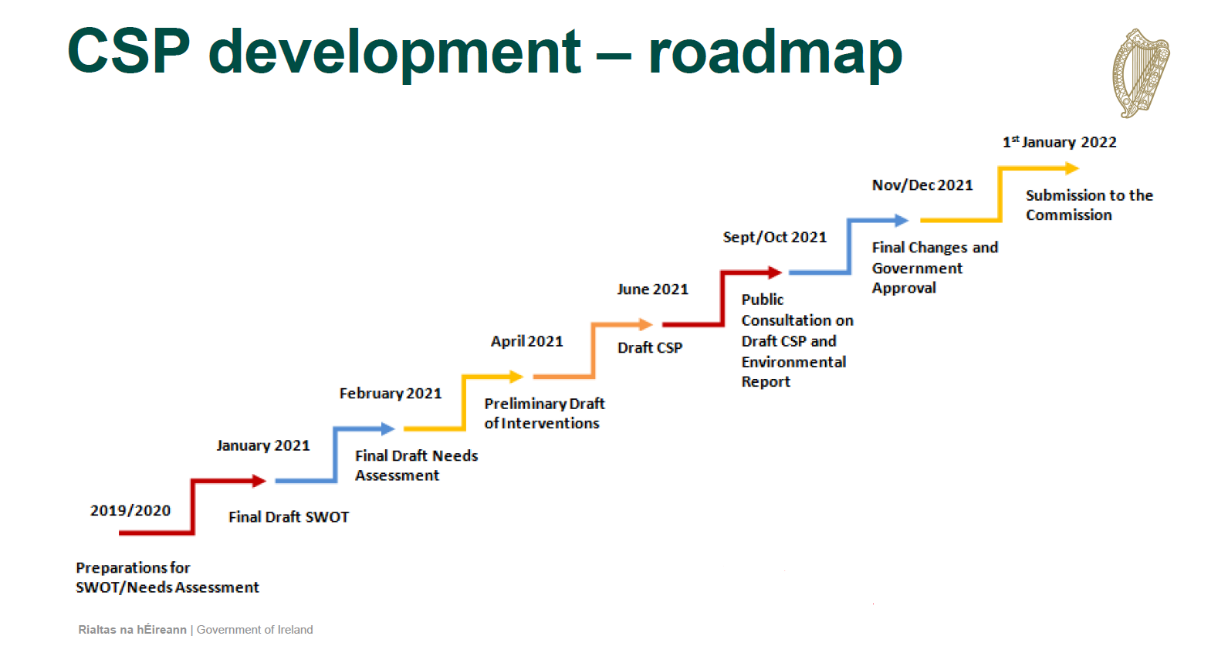The Development of Ireland’s CAP Strategic Plan for 2023 Intensifies
 The Development of Ireland’s CAP Strategic Plan for 2023 Intensifies
The Development of Ireland’s CAP Strategic Plan for 2023 Intensifies
As 2021 begins, little changes for farmers within the Common Agriculture Policy, as rather than implementing a reformed programme, as had been envisioned in then Commissioner for Agriculture, Phil Hogan’s 2018 proposal, a two-year prolongation of the old policy instead applies.
This prolongation until December 31st 2022, was necessary to provide time to finalise the shape of the new policy, which MEPs, EU member states and the European Commission continue to negotiate today, with the new deadline of June 2021 placed on discussions.
Despite this delay, preparations for the new policy are already well underway in Dublin. The CAP Consultative Committee, which ICOS participates in, has already completed a SWOT and Needs analysis of the agri-food sector- key exercises which will influence decisions on which interventions Ireland must prioritise in its “CAP Strategic Plan”. This plan covers all CAP measures, from how direct payments will be targeted to which schemes to be introduced for rural development and the environment.
This will be the key focus for discussion in the Committee going forward, with a final CAP Strategic Plan to be submitted by the Department of Agriculture to the Commission on January 1st, 2022, for review and approval, with the implementation of the new CAP starting from January 1st, 2023.
In order to assist national governments in developing their individual plans, the European Commission has published its customised recommendations for each country, including Ireland, on the basis of their individual needs and conditions
Ireland’s recommendations, which can be read in full here, include:
- Continued convergence of direct payments: through the capping of larger payments (at €100,000) and redistribution of the funding to smaller farms
- Focus environmental schemes (eco-schemes and pillar 2 agri-environment measures) on addressing nutrient loss and discharges into water; the conservation of grasslands, heathlands and hedgerows; the protection of peatlands with rewetting encouraged; and afforestation.
- Address animal welfare challenges: specifically, by improving the viability of male dairy calves in locally based production systems, suggesting a push to move away from live exports.
- Encourage generation renewal: through improving access to land and finance for young farmers, including targeting inheritance constraints.
- Develop the organic market and encourage conversation to organic production.
Alison Graham – European Affairs Executive